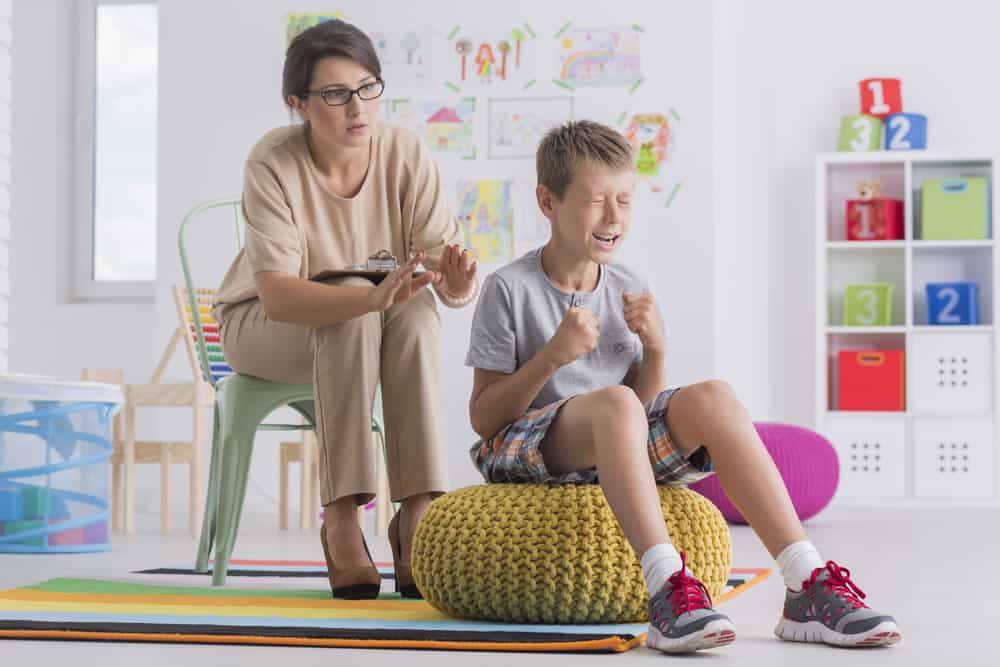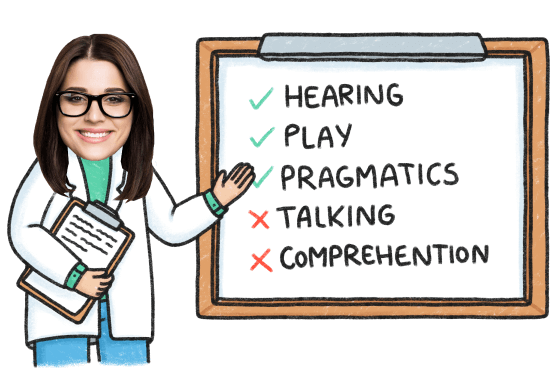Temper Tantrum Guide: When, Why, and How to Deal with Them
Feb 14, 2022 If you have a child of your own, it’s unlikely that we need to explain to you what a temper tantrum is – we’re sure you’re already very aware.
For parents, temper tantrums can be extremely frustrating and, if you are out in public, can be downright embarrassing. Rest assured, however, that most tantrums are completely normal, and your child is not the only one who throws them. In fact, they are a regular part of growing up.
So, there are different reasons that children throw tantrums. Some of these reasons are completely normal, while others may be a sign of underlying issues. Here are some of the many different reasons that children throw tantrums, and also a general guide on how to handle them. Let’s start by taking a look at when tantrums are likely to begin.
Temper Tantrum Phases and Why Children Go through Them
Baby Years: 1 – 2-year-olds’ tantrums
The term “terrible twos” can sometimes be misleading, especially when it comes to tantrums. Because of this term, many people think that tantrums start when a child reaches toddlerhood. Nope. Actually, it’s not uncommon for temper tantrums to start around one year of age.
Baby tantrums are completely normal and rarely are they ever a sign of aggression. Rather, infants have not yet developed a means of communication and don’t have a way to express their emotions. As you can imagine, not being able to express oneself is very frustrating. An infant lets his emotions out the best way that they know how – with a tantrum.

Toddler Years: 3 – 4-year-olds‘ tantrums
Tantrums in the toddler years can be a little more intense than baby tantrums and can often trigger a meltdown. Meltdowns can range anywhere from kicking and hitting, to screaming, and even breath holding. They look very similar to a tantrum, but the difference is that tantrums are an expression of a want or need.
On the other hand, meltdowns are a result of feeling overwhelmed by too much sensory input. Tantrums are very common and completely normal for both boys and girls between the ages of 1 and 3.
While some toddlers will have tantrums more often than others, it’s important that parents recognize that these are a completely normal part of childhood development. If your toddler is having a temper tantrum, it doesn’t mean that you are doing anything wrong. Rather, tantrums at this age are usually a sign of frustration or sadness.
For this reason, you will often see toddlers having temper tantrums when they are tired, hungry, uncomfortable, or when they don’t get what they want.
By providing our toddlers with guidance on how to properly handle and communicate their emotions, we can eventually escape the toddler tantrums phase – it just takes patience.

Childhood Years: 5 – 6-year-olds’ tantrums
Once a child hits the age of 4 or 5 they should be starting to grow out of the tantrum phase. By this time, most children have learned to better regulate their emotions and express themselves in a way that is more appropriate.
Still, some preschool-age children do still throw tantrums. When they do, it’s usually for one of two reasons:
1. Emotional Tantrums
Just like in toddler tantrums, some older children have a difficult time regulating their emotions which, in turn, leads to tantrums. Because children each develop at their own rate, it’s not surprising that we often see preschoolers who still haven’t developed the skills necessary to keep their emotions at bay.
For children that are a little behind in emotional regulation, temper tantrums can often accompany feelings of anger, frustration, or sadness.
2. Power Tantrums
When a child is an infant or toddler, tantrums are usually related to the inability to express emotions properly. But as children grow older, a new type of tantrum can arise – the power tantrum. This tantrum is all about what you would expect – power and control. If your child is throwing a power tantrum, they may be trying to test your authority.
An example? If you’ve ever seen a child yell and scream at their parents because they don’t want to put on their coat – that’s a power tantrum. In such a situation, there is no reason for the child to be emotionally stressed out or upset. Rather, they are just trying to test their parents and display their independence.
While power tantrums are not as common as toddler tantrums, they’re not an uncommon childhood behavior. Don’t be hard on yourself if your child is throwing them. Like other tantrums, these can be overcome.

Can a Temper Tantrum be a Sign of a Bigger Problem?
So we know the different reasons that babies, toddlers, and children have temper tantrums. But, while most tantrums are completely normal, there are times that they can also be a sign of an underlying condition.
More specifically, research has recently found a connection between late-talkers and tantrums. In fact, one survey found that late-talkers are twice as likely as “typical” talkers to have severe and frequent tantrums. This pattern was not only found in children but was actually found in infants as young as 12-months-old. This means that infant and toddler tantrums can also be related to delayed language development.
Furthermore, it has also been suggested that early speech problems can lead to persistent language problems, which can affect both academic performance and mental health as kids grow up.
This is why it important to address speech concerns as soon as possible. Speech therapy and speech therapy apps like Speech Blubs can help your child to work on their language development at a young age, ensuring that the difficulties they experience in childhood don’t persist into adulthood. Also, by teaching your child how to communicate properly and effectively, speech therapy and speech therapy apps can help to reduce your child’s frustration levels, thereby reducing the likelihood of frustration tantrums.
Boost Your Child’s Speech Development!
Improve language & communication skills with fun learning!

Triggers of Toddler Tantrums
You may or may not be surprised to know that there are actually several different types of temper tantrums. Here are a few of them:
- Fatigue tantrums that occur when a child is tired.
- Frustration tantrums that occur when a child is upset of frustrated.
- Hunger tantrums that occur when a child is hungry.
- Attention seeking tantrums that occur when a child wants to get your attention
- Power tantrums (as discussed above) that occur when a child wants to display their independence and test your authority.
- Disruptive tantrums where a child will scream and flail in public.
- Over-stimulation tantrums where a child is feeling overwhelmed by emotions or a situation.
- Bedtime tantrums when your child does not want to go to sleep.
- Rage tantrums where your child will lose control both physically and emotionally.
How to Handle Toddler Tantrums
What can we do to deal with tantrums? The best way to deal with them is to prevent them altogether. You can reduce the likelihood of tantrums by:
- Reducing stress by ensuring that your child has regular naps, is well-fed, and has plenty of one-on-one time with you;
- Tuning into, and being sensitive to your child’s needs and emotions;
- Identifying and removing tantrum triggers;
- Talking about your child’s emotions and providing different coping strategies (when they are older).

How to Deal with Temper Tantrums in Toddlers
We can try to avoid or stop temper tantrums as much as we want, but they’re probably still going to happen once in a while. When they do, here’s how to handle them:
- Stay calm. If you get angry or upset, this will just escalate the situation. Take a moment to breathe if you need to and speak to your child in a calm, caring voice when you are both ready.
- Wait out the tantrum. Stay close to your child’s side when they are having the tantrum so that they know they are safe, but let them cry it out. Once your child is in the middle of a tantrum, there’s no point in trying to distract them or get their attention – it’s already too late. Wait it out and speak to them when they are ready.
- When your child is ready, sit down and acknowledge their emotions. “It’s really upsetting when your food falls on the floor, isn’t it?” By speaking about the issue at hand, it helps your child to reset their emotions and learn to deal with them differently.
- Be consistent with your approach, especially if your child is throwing an attention or power tantrum. If they know they can get what they want, they will associate tantrum throwing with positive outcomes and the situation could get worse.
Read more on how to deal with a temper tantrum and what are the most common mistakes parents do, when their child throws a tantrum.
Nurture Early Learning to Overcome Temper Tantrums
Kid temper tantrums are going to happen. Don’t be hard on yourself. Infant tantrums, toddler tantrums, and childhood temper tantrums are a completely normal part of growing up.
So, if you find that your child is having an unusual number of tantrums, it could be because they are having difficulty expressing themselves through language. If this is the case, it’s best to seek out a speech therapist or use a speech therapy app like Speech Blubs to help deal with any language development problems before they become a problem.
Have a question for our Speech Therapists?


My 3 and half year old twins are very picky eaters. Every time i should force them to eat.. They dont eat by themselves even if i gave them in a plate.. They dont like to sit and eat.. It takes 1 hour to Complete their meal each time.it is really frustrating. This consumes so much of time.. How should i make them to eat properly?
Hi, thank you for your question! We wrote some practical tips for picky eaters. Hope that helps!
My 3 and half boy very naughty and smart.sometimes he is very tempted unknowingly that time he do biting, kicking and throw things to all. that’s tough time for us how to convenience him.usually he watching cartoons and rarely using phone for watching videos. We won’t allow to see the mobile. Please guide is it normal for this life cycle. we can’t easily manage that he is tempted
Tantrums are a normal phase that every child goes through, especially if they don’t have words to express their feelings. You can teach him about feelings with Speech Blubs app too! You can start with your search for answers on our blog where you can read more about how to deal with a tantrum. But don’t stop there! Read books, observe your child, try some methods and be consistent. Stay strong!
Hi, my son is 3 years old, he can speak alphabets, numbers some rhymes, he can repeat the words, but not able to communicate other things, like he is not speak mummy, papa, so what can I do in that
Hi, thank you for your question. When in doubt about developmental milestones, always voice your concerns to your pediatrician. Speech Blubs can help your little one — this is an easy way to expand his vocabulary. You can try with the “Family Time” section, so he will start mimicking kids in the app to say mom, dad, grandma, sister etc. Remember that every opportunity is a speech opportunity, so try to include some speech activities in your daily routine. We have plenty playtime ideas for speech development on our blog! Try some of those and be consistent.
My little girl is 14 months old. She has always been a clingy baby with me and now being at hone she throws tantrums if she cant sit on my lap, be picked up , if i leave the room, and if she cant get her own way. She tantrums for me more than her dad. I try and stay calm, talk to her calmly and sometimes i have to leave the room and leave her with her dad and she quickly settles. Am i doing the right things?
I can totally empathize with having a very clingy baby. My son is almost 15 months old and, from the time he was born, only wants to be attached to me. When I put him down, he will fussy and scream for a short period of time. What has worked for me is that I put him down, ignore the tantrum, and walk away. There are also times when I put him down in the living room with his sister and hand him some toys as a way to distract him. You are absolutely doing the right thing. For your own sanity, you need to walk away. Keep doing what you are doing and, eventually, your daughter will become a little less attached and won’t tantrum.
Stacie Bennett, SLP
My 3 1/2+ year old (he will be 4 on July 19th) will wake up from a nap crying. Then he will ask for something or ask for help with something (while still crying/whining) and when you try to give it to him or help he steps back and won’t let you. Then if you walk away, he comes running for me, crying and screaming. I try to help again and he says no or steps back/away from me. Turns his head away from me and crosses his arms. I walk away again, he comes running, screaming, etc.. This pattern repeats and repeats over and over during the tantrum. The tantrum can last as long as an hour or longer sometimes. Is this a typical tantrum or something I need to be concerned with?
Kids can tantrum for a wide range of reasons and for varying amounts of time. If you haven’t checked out our article about tantrums, I highly recommend doing so because it gives suggestions on how to overcome them when they happen. An hour long tantrum is definitely a significant amount of time for a tantrum to be occurring. Does he do any other behaviors while tantruming, such as throwing items, throwing himself? If he does, it may be worth talking to your pediatrician about because there could be something more going on. I would suggest that you give him what he wants and if he doesn’t take it, put it somewhere that he can reach it and walk away. If he comes to you screaming, tell him where the object is and ignore the behavior. Keep repeating this until the tantrum is over or he goes and gets the object. Kids will also be much more fussy if they aren’t getting enough sleep. When kids wake up from their naps unhappy, it can mean they aren’t getting enough sleep or enough quality sleep!
Stacie Bennett, M.S. CCC-SLP
Hi , My 4 year old wakes up at night , crying , screaming , trashing , biting , this has been going on for a while now, during the day he he will do the same if for instance his wish is not met, please can you advise what should we do next ? he does pronounce words but it seems that he has difficulties in putting together sentences,
The most important thing is to keep calm and make sure your child is physically safe. Read the speech therapist’s advice about the tantrums. To help practice sentences, you can use the Speech Blubs app! We have a building sentences section, that could be a great start for your 4-year-old.
Hi! My 3 and half year old boy is very curious, (he doesn’t sit still) and smart. He is learning 3 languages at the same time but he screams almost all the time( since a month ago). He even does it at school with his teacher which has got me very worried and don’t know what to do. He screams when he wants something or things don’t go his way. It seams to me as Power tantrum, as I was reading.
I don’t know how to deal with it. I have a 6 month old as well and I feel like I don’t have the energy nor the time or patience to deal with my 3 year old.
Any advice would be appreciated. Thanks
Firstly, I can totally empathize with you because I have a three year old daughter and a 1 year old son. My son screams so loudly when things don’t go his way and when anything is a minor inconvenience. I feel like I need a little more information from you in order to provide some direction or advice. For instance, does he communicate effectively with you and his teachers? Can he ask for things he wants and needs? Does he use nonverbal communication, such as pointing? After he screams, what is his reaction when you react? Does he calm down, escalate, move on?
Three year olds are always finding ways to push their limits and it does sound like a tantrum, but I want to make sure he is able to communicate and that’s not the root of the problem! As a parent, I can tell you to try and stay calm, let him work it out and, if you need to, make sure both kids are safe and walk out of the room and take a deep breath!
Stacie Bennett, M.S. CCC-SLP
Hi my girl 3years old when she asks something and maybe I deny her she will cry for even 30mins insisting on the same how can I handle this
Hi. It sounds like a normal tantrum. I wrote a great section on how to handle tantrums for Speech Blubs. I would suggest reading that blog first and then let us know if you have any further questions! That blog will give you tips and suggestions on how to deal with her crying.
Stacie Bennett, SLP